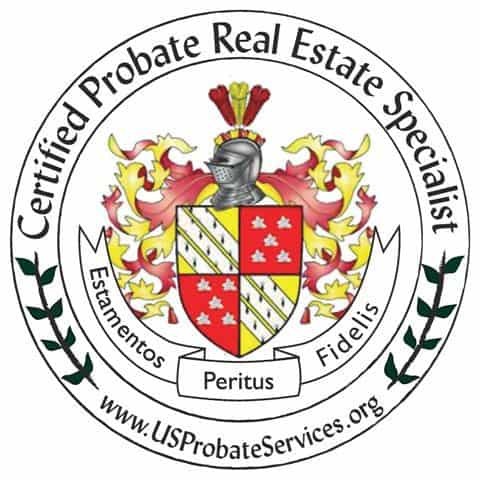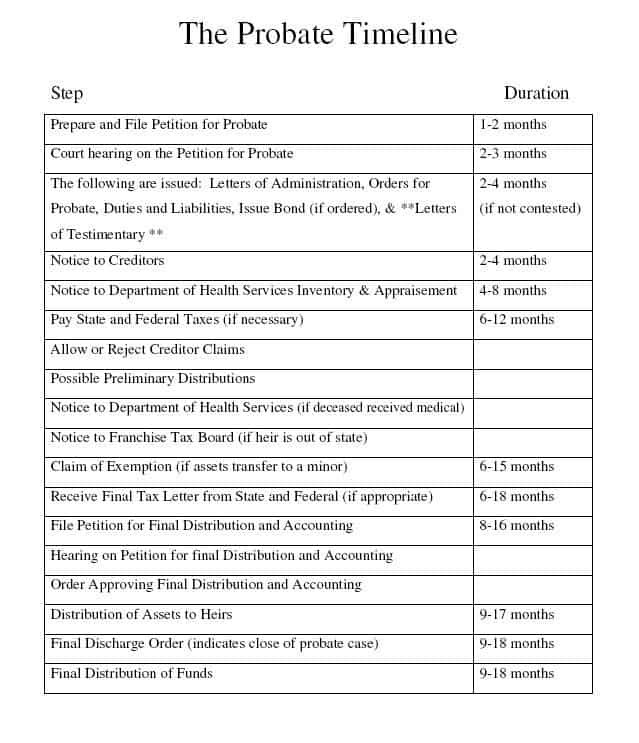
CPRES | CERTIFIED REAL ESTATE PROBATE SPECIALIST | UTAH
The primary focus of this page is on procedures when everyone involved is in agreement and cooperating. It does not include information or forms for litigating a probate case.Specialty Real Estate Agent Takes Burdens Away, Lessens Potential For Disputes.
The last thing you want after losing a loved one is a family dispute over the estate, especially the house. That’s why it is a good idea to hire a Certified Probate Real Estate Specialist. These go-to real estate agents possess an educational credential to help sellers avoid legal hassles over wills, estates, and asset distribution to heirs.
The national organization U.S. Probate Services manages the credentialing designation. Although laws differ from state to state, probate is the court process by which a judge approves the deceased’s will. Certified Probate Real Estate Specialists help broker the estate closing.
Will Problems
It might sound far-fetched to think that heirs will fight over their parents’ will, but estates fail 70 percent of the time to thoroughly distribute assets as stipulated in the will, according to author Lori Sackler, who writes on how parents should talk to their adult children about the estate.
Benefits Of a Certified Probate Real Estate Specialist
A certified real estate agent acts as an adviser during the house-selling process, helping co-heirs avoid the potential for disputes. Some of the advantages of hiring a Certified Probate Real Estate Specialist include:
- Selling expertise with an eye toward minimizing risk for disagreement between heirs;
- Help with inspections, bids, and home repairs;
- Trusted adviser during a difficult time;
- Support during the probate process;
- Knowledge of estate settlements and wills.
If you need help with a family estate we have the expertise and certification in this field. I you just are getting starting with the probate process or are 90 days in. We’re here to guide you. Are main focus is the sale and liquidation of the real estate assets in probate.
Keeping your family safe and free of debt collectors and added stress after passing on is of utmost concern.
Hiring a Certified Probate Real Estate Specialist is a good way to avoid unforeseen headaches.
12 most common mistakes an administrator or executor can make during probate and how to avoid them.
What follows below is a list of common mistakes that can be costly if not voided. We encourage you to read thoroughly. It has helped many executors and administrators alike and we hope it can assist you as well.
No outcome in mind
Beginning with the end in mind provides clarity and focus throughout the entire probate process. Although it can be an overwhelming experience (especially if the decedent is your close relative), it does not have to be stressful, if you have a clear reminder of and commitment to what the end goal is. Here are some examples: peace of mind, pay off debt and taxes a.s.a.p., settle with heirs, and maximize value of estate, just “be done with it and get it over” and others. Whatever the end goal is, it must be agreed upon by all so that you get support and have confidence in the decisions you make as the executor/administrator.
Not educating yourself on the probate process and deciding if you need / want a lawyer
Relying on your attorney for EVERYTHING
Marketing real estate too late
Securing and maintaining real estate. You are responsible
Choosing friends over the right professionals to do a particular job
Not collecting paperwork and submitting documents in a timely fashion
Waiting too long to begin the probate process.
Not Keeping Accurate Accounting Records
Not picking up mail from decedents property
Not keeping open communication with heirs
Not knowing your options when it comes to selling real estate
Learn More Contact Us
Home Valuation
Start by getting an idea of the value of the Estate Property We can provide a rough value online or a much better way is to meet us at the property for a full Broker Opinion of Value
 Elements of Informal Probate
Elements of Informal Probate
Public information from Utah Courts
What is Probate
- the estate includes real property (land, house, condominium, mineral rights) of any value, and/or
- the estate has assets (other than land, and not including cars) whose net worth is more than $100,000.
Personal representative
- contacting heirs and creditors,
- collecting and taking inventory of the estate, determining and paying taxes,
- selling property to pay taxes or debts, and
- distributing remaining proceeds to the heirs.
The personal representative may also bring court claims on behalf of the estate.
Small estate affidavit
- the entire value of the estate is under $100,000,
- there is no real property,
- at least 30 days have passed since the death, and
- no application for appointment of personal representative has been filed.
If there is any question about who the decedent’s successor is, then a third party might ask for the court appointment of a personal representative before distributing the asset. Utah Code 75-3-1201.
Informal or formal probate?
Who may file
- Nominated in the will to be a personal representative.
- Spouse of the person who died if the will makes a gift to the spouse.
- Any person receiving a gift under the will.
- Spouse of the person who died even if no gift is made to the spouse in the will, or if there is no will.
- Any heir of the person who died.
- Any creditor of the person who died, if 45 days have passed since the death.
Utah Code 75-3-203. The personal representative is responsible for:
- Collecting all monies owed to the estate; paying taxes and mortgages on any real property owned by the decedent; managing the estate and making repairs where needed acting as a prudent investor;
- Filing estate tax returns; filing the estate income tax return and submitting problems to the court when terms of the will are unclear or ambiguous for clarification;
- Settling the remainder of the estate in accordance with the will or the law; submitting a final accounting.
The person who is appointed personal representative is responsible for distributing the estate according to the will and according to the law.
When to file
Where to file
Is there a will?
Starting a probate case
Application
To start an informal probate case, the person asking to be appointed the personal representative files an Application with the court along with the filing fee and a civil cover sheet.
Waiver of Notice
Interested persons must complete and sign a Waiver of Notice form to indicate their approval of the personal representative. “Interested persons” include:
- heirs,
- persons named in the will (devisees),
- children,
- spouses,
- creditors,
- beneficiaries, and
- any others having a property right in or claim against the estate of the decedent.
See Utah Code Section 75-1-201 for a full list of “interested persons.” If an interested person will not sign a Waiver of Notice form, then a hearing will need to be scheduled and that person will need to be sent notice of the hearing. This changes the probate from informal to formal. The formal probate process is beyond the scope of this page. In some circumstances, notice of the application is sent by the court to all interested persons listed in the application and if no interested person files an objection to the application, the court can appoint the personal representative without a hearing. Utah Code 75-3-306. Check with the court where the case is filed for local practice information.
Renunciation
Utah law defines who has priority to be appointed personal representative. Someone with equal or higher priority than the applicant can agree to the applicant being appointed personal representative by signing a Renunciation form. See Utah Code 75-3-203.
Death certificate
The applicant must also submit an official death certificate with the probate paperwork. Information about ordering a death certificate is available on the Utah Vital Records and Statistics website. If the decedent did not die in Utah, use the National Center for Health Statistics Where to Write for Vital Records page to find contact information for other U.S. states and territories.
Acceptance of appointment
The applicant must also file a signed Acceptance of Appointment. This document indicates the applicant’s agreement to
- serve as the personal representative of the estate.
- perform the duties the law requires.
- submit personally to the jurisdiction of this court in any proceeding relating to the estate that may be filed by any interested person.
Statement of informal probate
The Statement of Informal Probate is the document the court uses to approve the appointment of the applicant as the personal representative of the estate.
Letters Testamentary or Letters of Administration
If the request is approved, the court signs the document called Letters Testamentary (if there is a will) or Letters of Administration (if there is no will). A certified copy of this document can be presented to third parties – such as banks and insurance companies – to show that the named person has been appointed by the court as personal representative of the decedent’s estate.
Objection to appointment of personal representative
After the documents have been approved
Announcement of appointment and notice to Creditors
Courtesy of
https://www.utcourts.gov/howto/informalprobate/
Forms
Informal Probate – Without a Will
- Civil Coversheet – PDF | Word
- Application for Informal Appointment of Personal Representative – PDF | Word
- Waiver of Notice – PDF | Word
- Renunciation or Nomination – PDF | Word
- Statement of Informal Appointment of Personal Representative – PDF | Word
- Acceptance of Appointment as Personal Representative – PDF | Word
- Letters of Administration – PDF | Word
- Announcement of Appointment and Notice to Creditors – PDF | Word
Optional, to show that interested parties who did not waive notice were served
Optional, for any party wishing to object
Courtesy of
https://www.utcourts.gov/howto/informalprobate/
Forms
Informal Probate – With a Will
- Civil Coversheet – PDF | Word
- Application for Informal Probate of Will and Appointment of Personal Representative – PDF | Word
- Waiver of Notice – PDF | Word
- Renunciation or Nomination – PDF | Word
- Statement of Informal Appointment of Will and Appointment of Personal Representative – PDF | Word
- Acceptance of Appointment as Personal Representative – PDF | Word
- Letters Testamentary – PDF | Word
- Announcement of Appointment and Notice to Creditors – PDF | Word
Optional, to show that interested parties who did not waive notice were served
Optional, for any party wishing to object
Courtesy of
https://www.utcourts.gov/howto/informalprobate/
Helpful Links & Related Information



